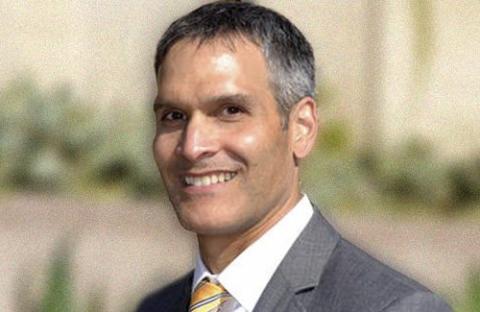At the Intersection: ITLP Director Villasenor on Emerging Tech, Law and Policy

John Villasenor is a professor of electrical engineering, public policy and law at UCLA. As director of the UCLA Institute for Technology, Law and Policy (ITLP), which launched in January 2020 with a five-year, $10.25 million grant, his work lies at the intersection of technology, policy, law and business — with a focus on communications and information technologies and their broader ramifications.
In this Q&A, Villasenor discusses his research and the work of the year-old ITLP, which is a partnership between the law school and the UCLA Samueli School of Engineering. “To obtain the maximum benefit from these and other technologies,” he says, “we need engineers, legal scholars and policy experts to work together.”
As the director of the ITLP, your research involves many different disciplines. What is the mission of this institute, and how does it enhance your research activities?
Our work examines the broader opportunities and challenges presented by technologies such as artificial intelligence and machine learning, robotics, cybersecurity and digital media, and communications. To obtain the maximum benefit from these and other technologies, we need engineers, legal scholars and policy experts to work together.
What are some of the research projects that you are focusing on for this year?
One area we have been looking at is algorithms and bias. Everyone agrees that algorithms should be unbiased. But when you dig a little deeper, it turns out that there are lots of different ways to measure algorithmic bias, and typically these measures are mutually incompatible. So how do you choose which one to use? We’ve been taking a holistic look at algorithmic bias that includes both mathematical and legal perspectives, with the goal of creating greater understanding of the options and tradeoffs involved in algorithm design.
Another topic we’re examining is the role of algorithms in the criminal justice system. That raises some really important legal questions regarding defendants’ rights. For instance, does a defendant have a constitutional right to information about the inner workings of an algorithm that produces “criminal risk” scores used by judges to make decisions regarding bail and sentencing? I think the answer is yes. Unfortunately, that doesn’t generally occur.
How do undergraduate and graduate students fit into these research projects?
Students are a key reason why ITLP was launched. So far, we’ve had multiple law students doing projects with ITLP, and our plan is to bring in undergraduates as well. One example of an area where there’s a great opportunity for undergraduate and graduate engineering students to engage involves creating new machine learning (ML) algorithms that aim to address concerns about algorithm bias. For example, what are the most effective ways to use ML to identify — and potentially remove — biases built into data? We’ve got a project looking at that question.
How will your research be translated into new technologies?
I would say that our work is focused on getting ahead of the legal and policy questions that new technologies are creating. Technological innovation happens so fast these days that the legal and policy frameworks can get left behind. One thing we’re trying to do is bring the legal and policy dialogue forward so that it can keep pace with — and also spur — more innovation.
How has discretionary funding through donor gifts enabled you to further your research at UCLA?
Without the support of donors, ITLP simply wouldn’t exist. A lot of university research is very narrowly focused. And that’s not a bad thing. We need highly focused, targeted research to move forward in science and engineering. But we also need more than that, and that’s where the traditional funding agencies haven’t been as active. In particular, we need more work at the technology-law interface. That’s an area in which engineering schools haven’t generally had much strength or focus. But it’s vitally important, and that critical gap is one that ITLP aims to help fill.